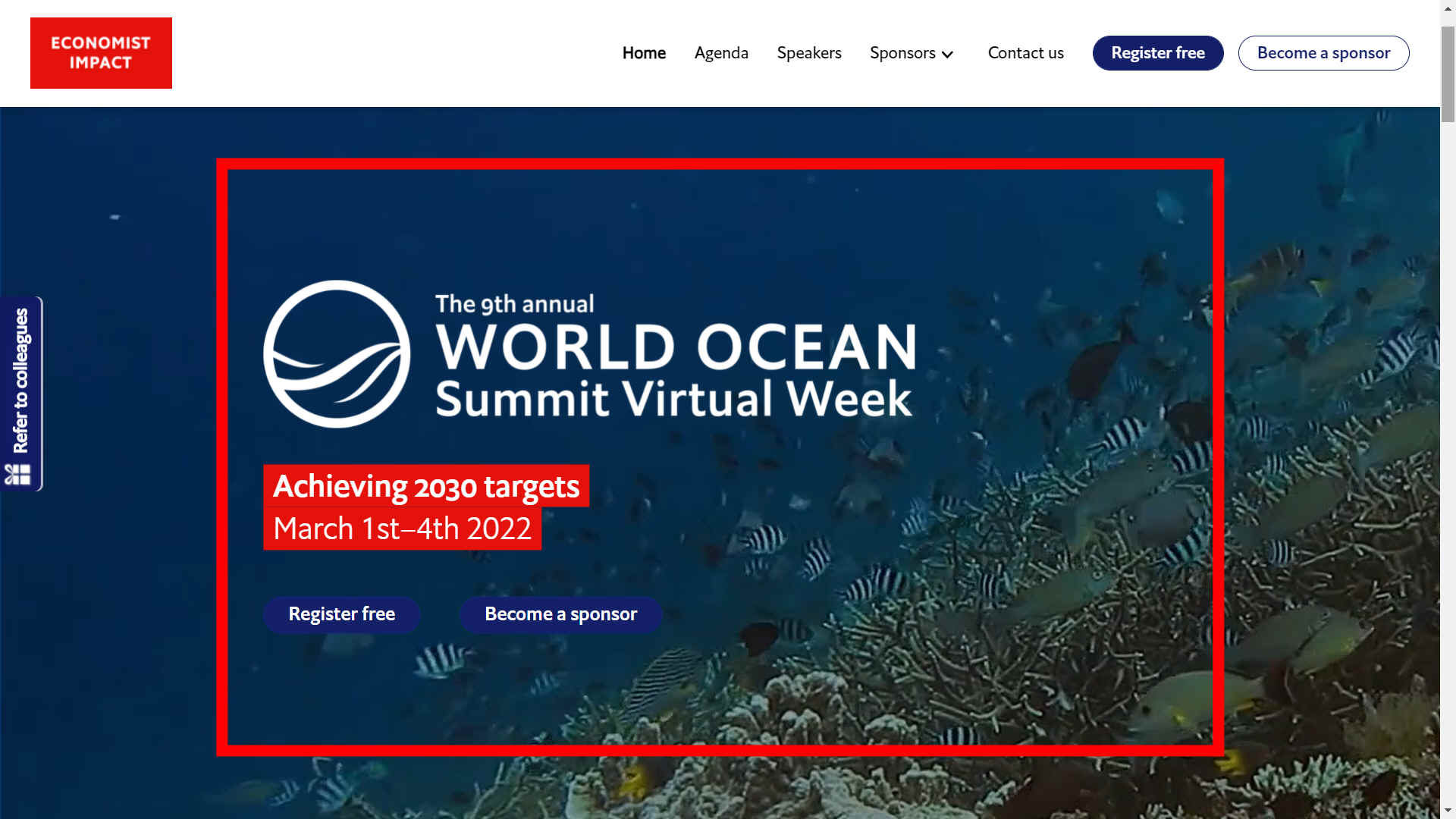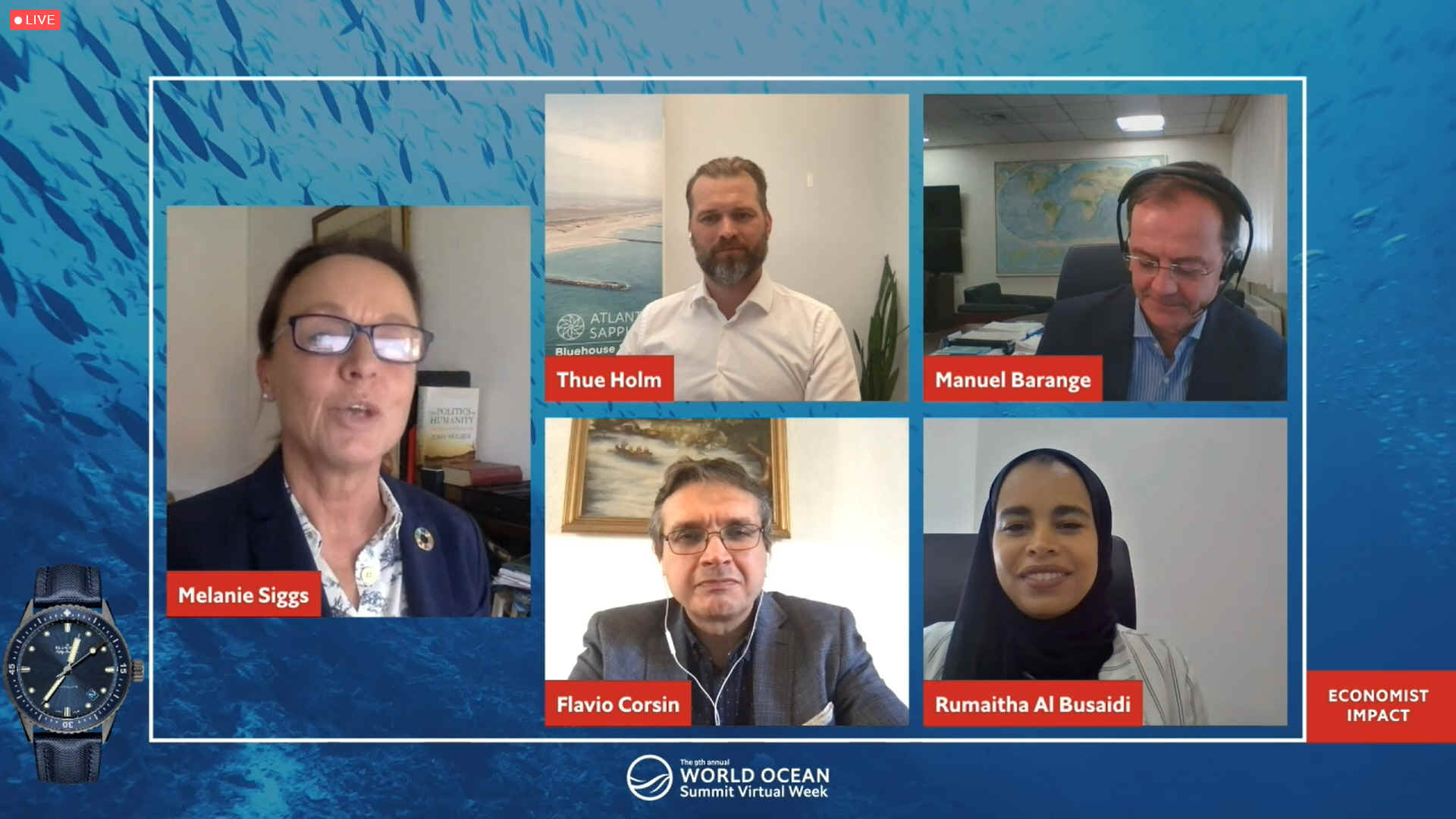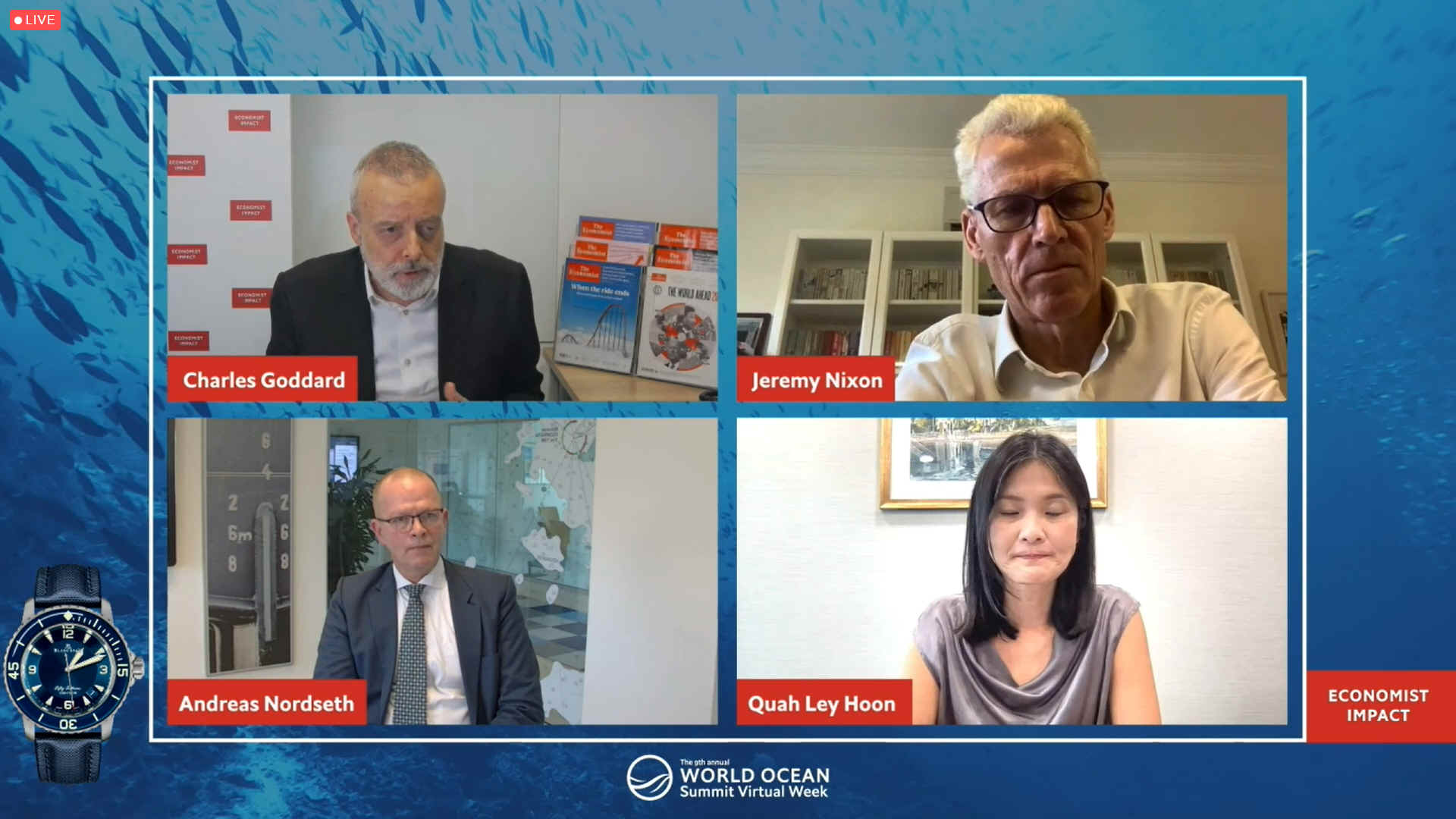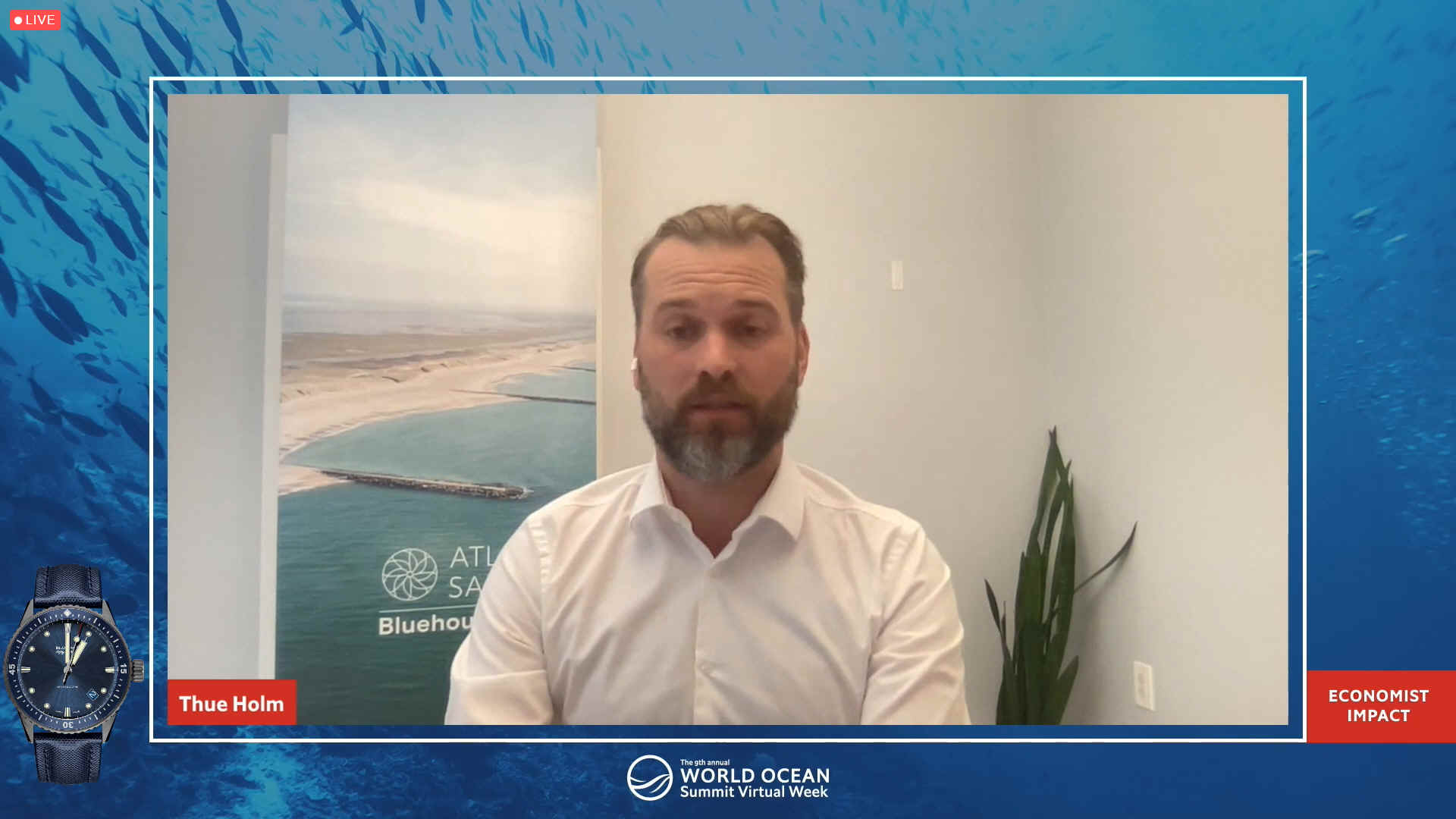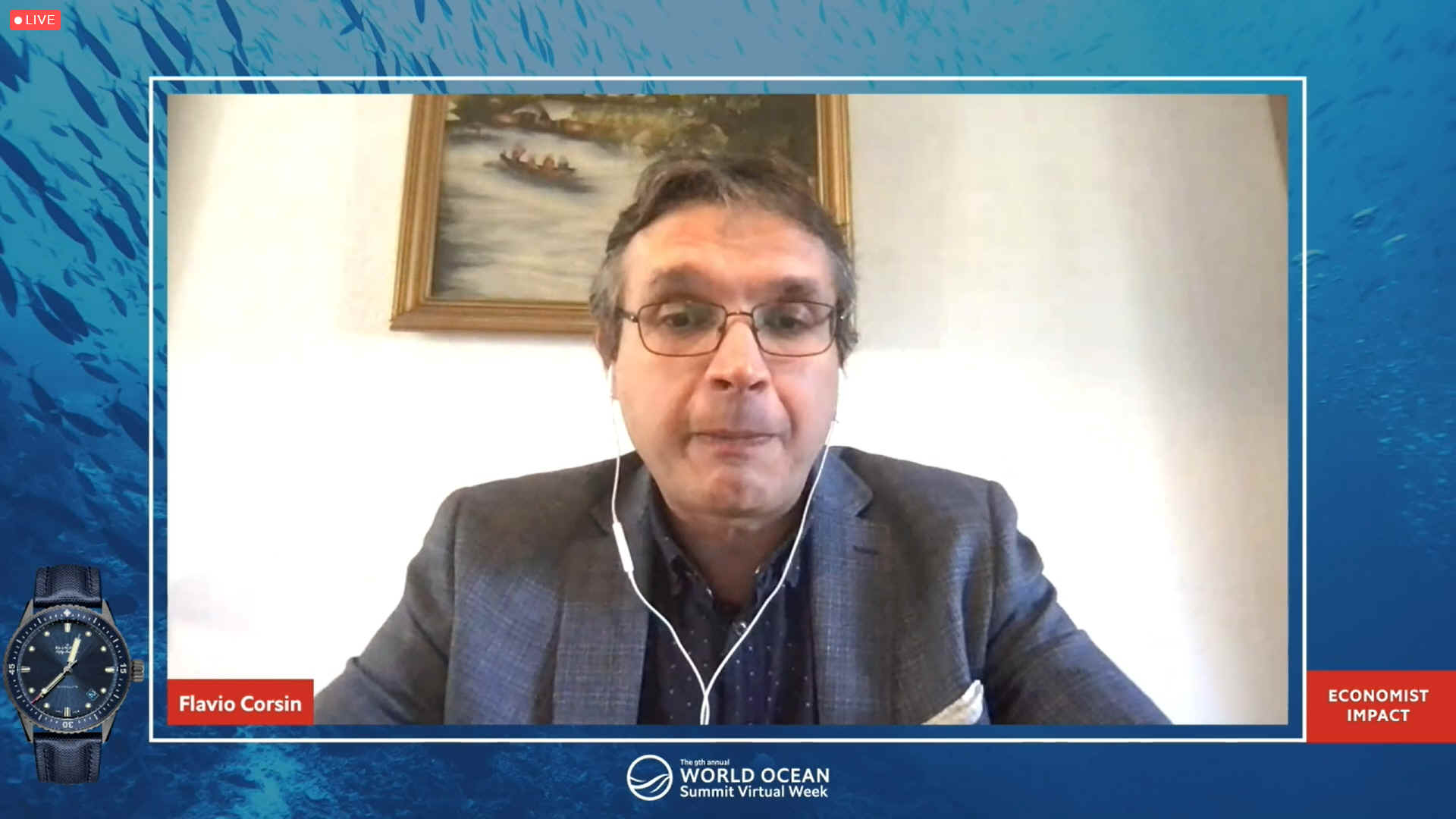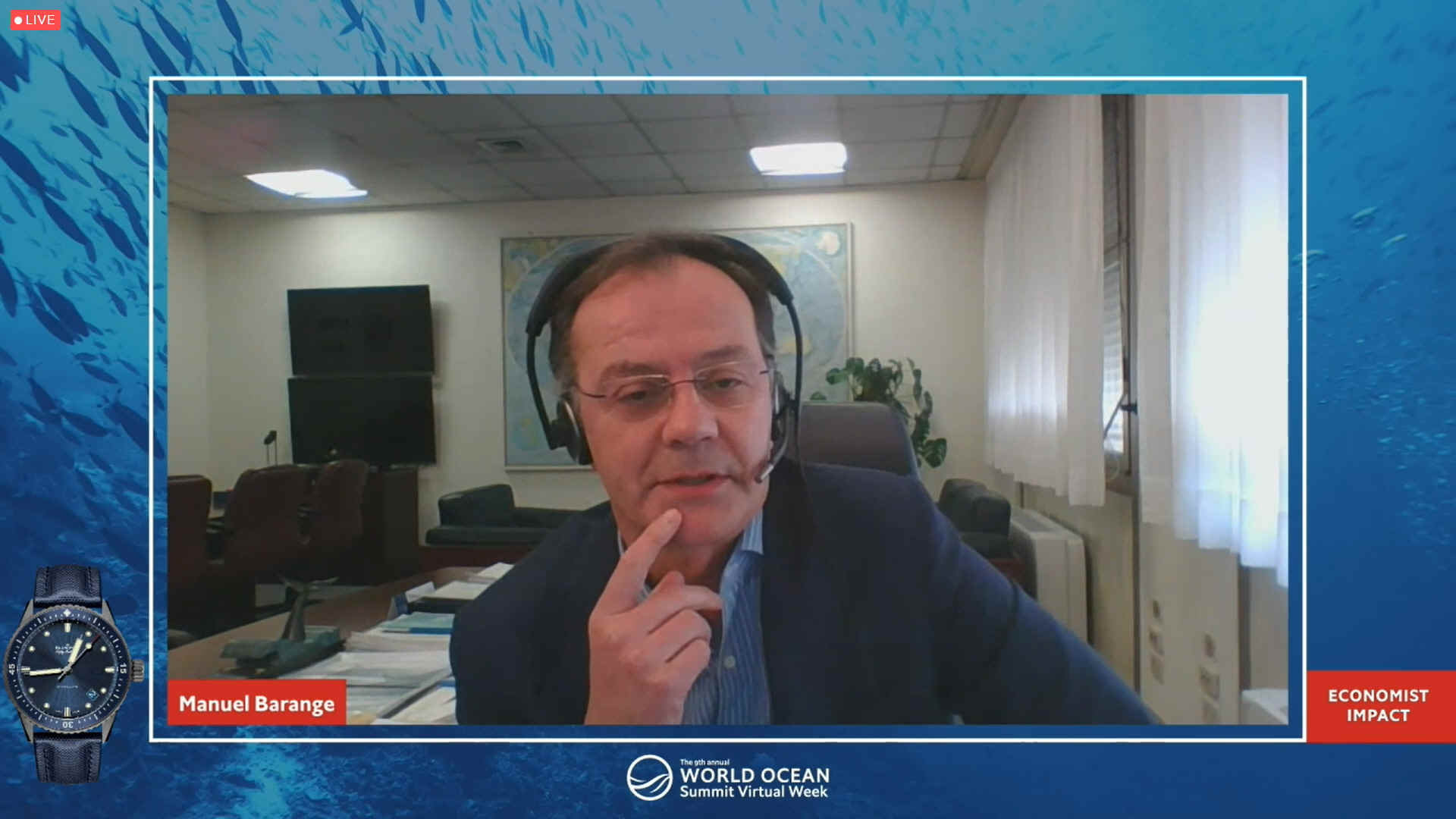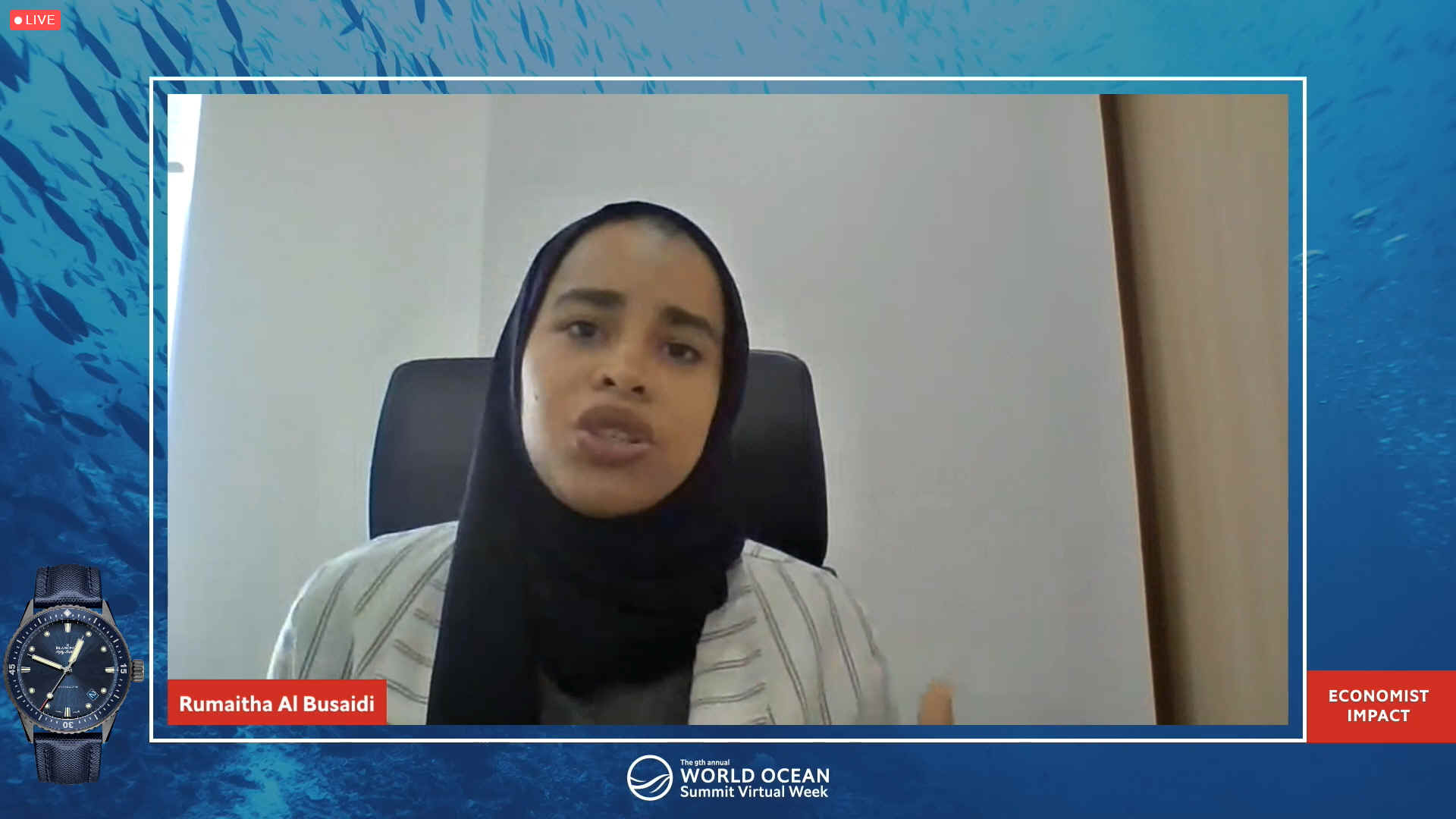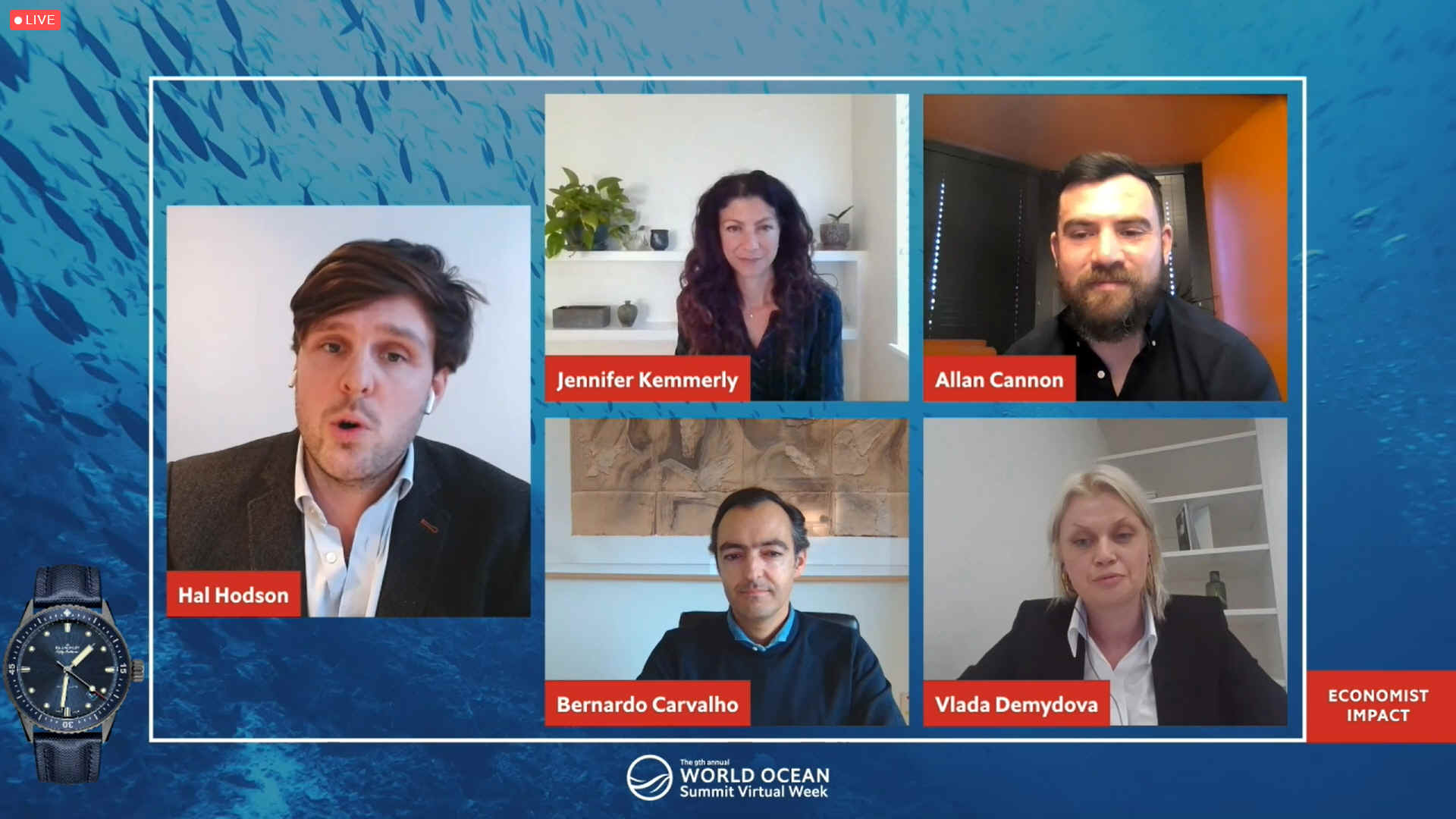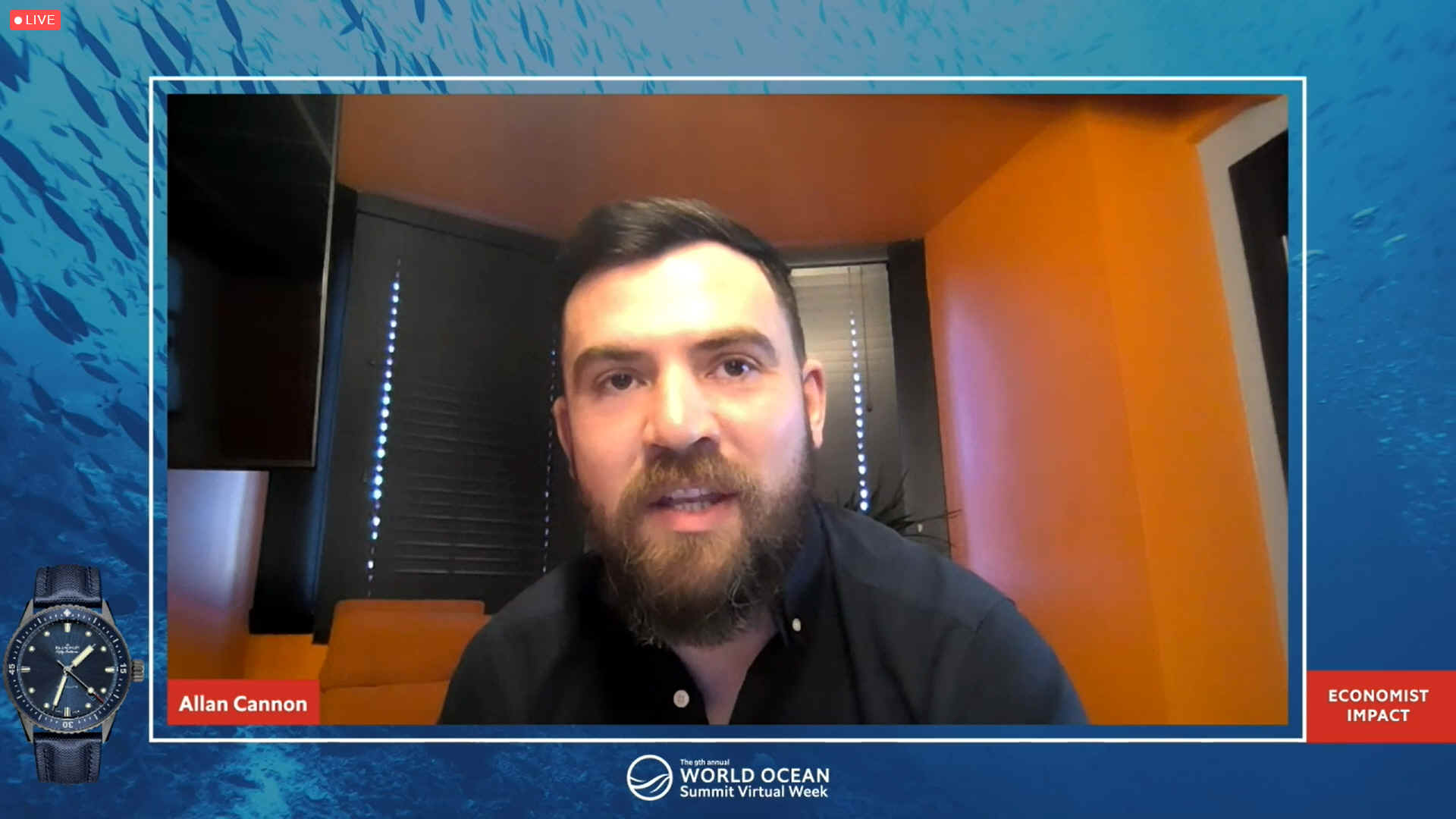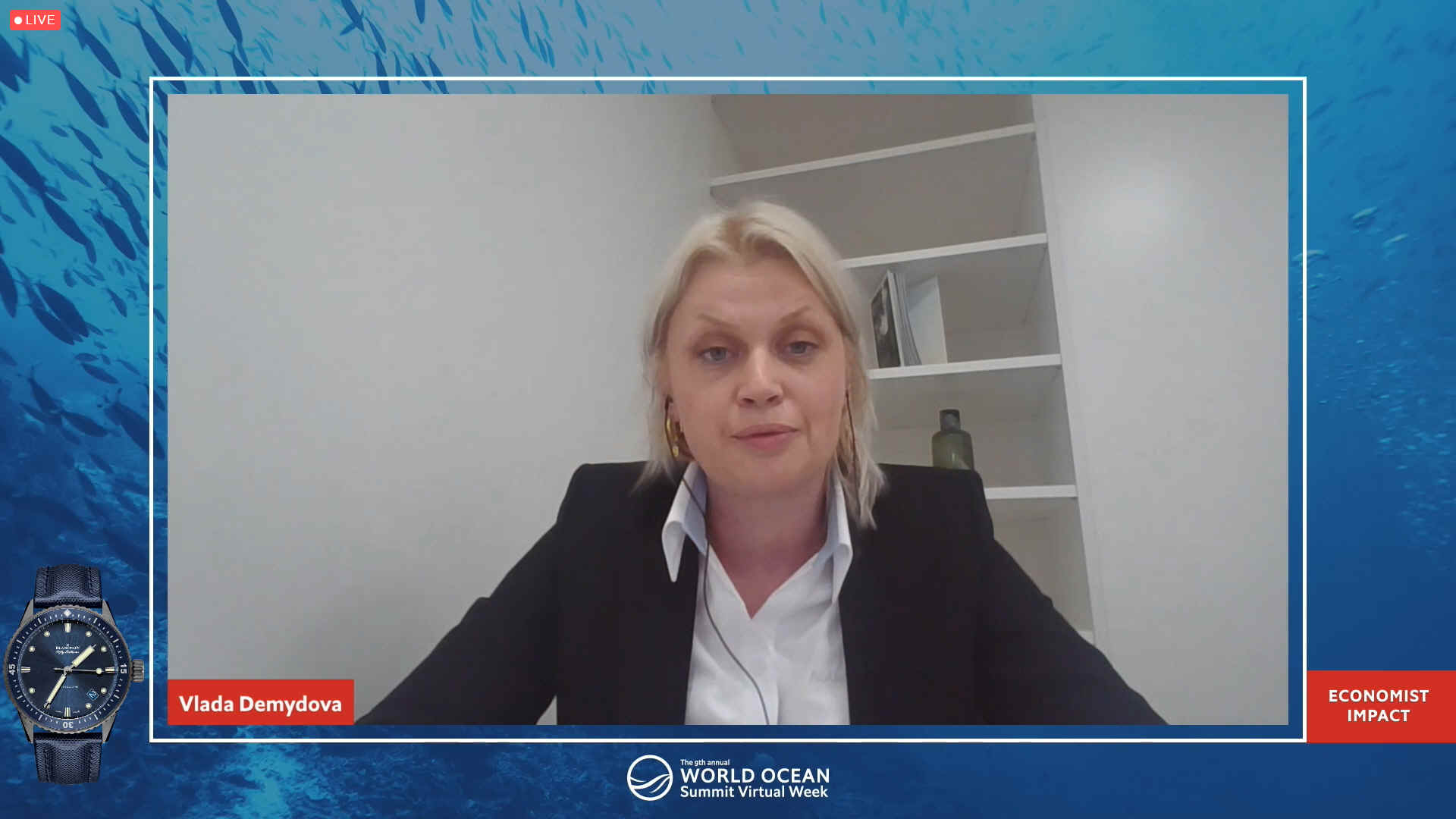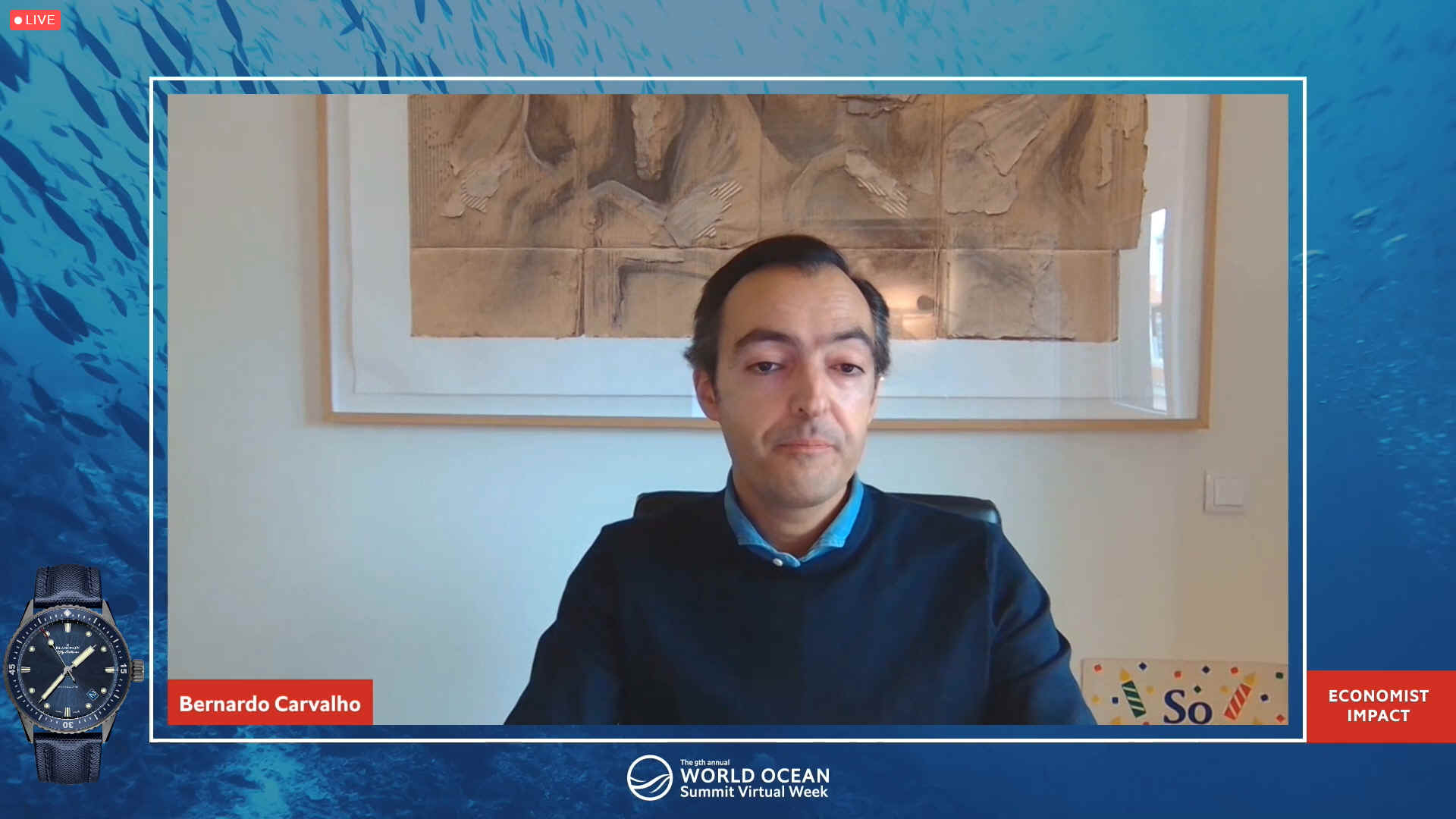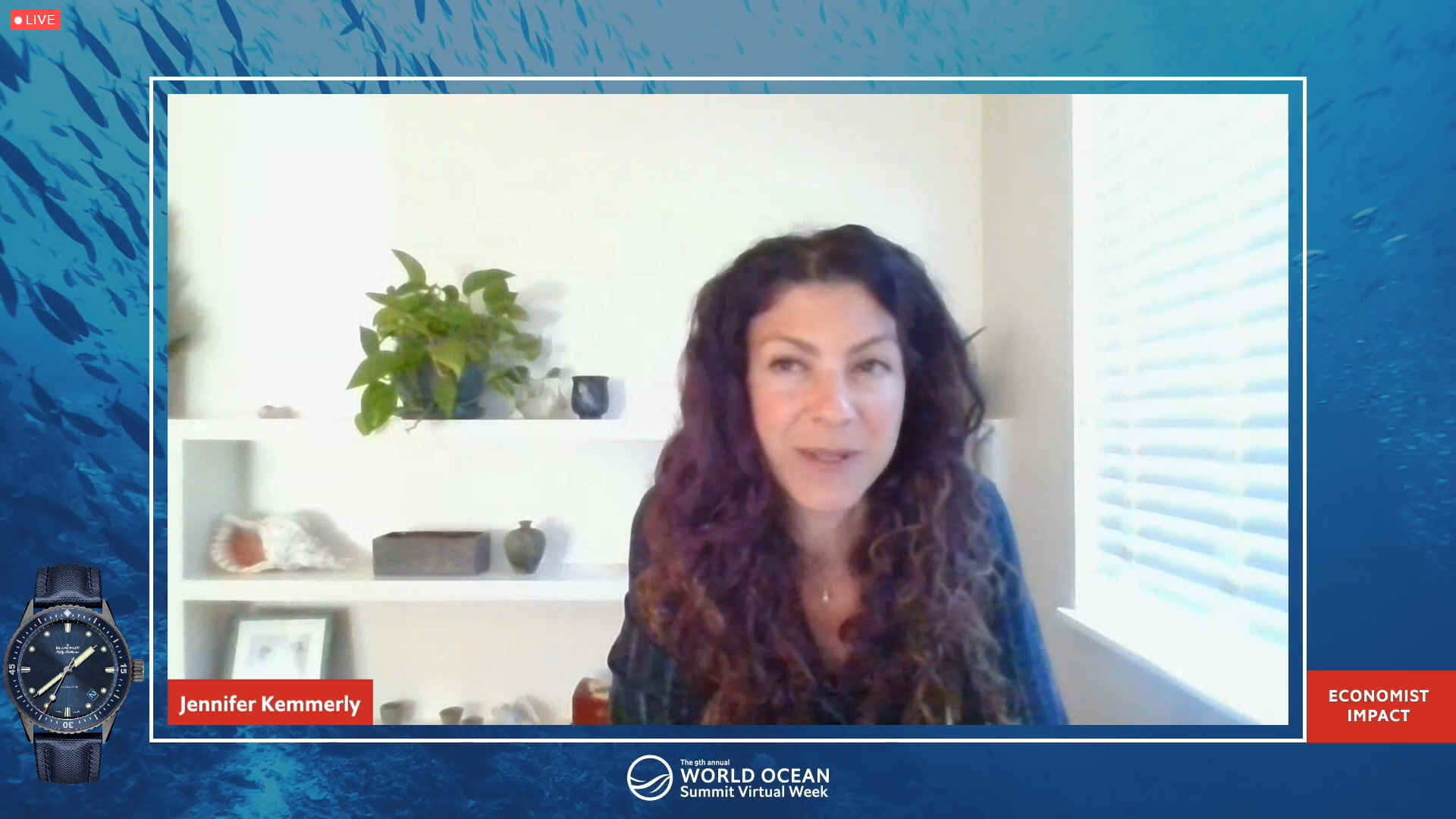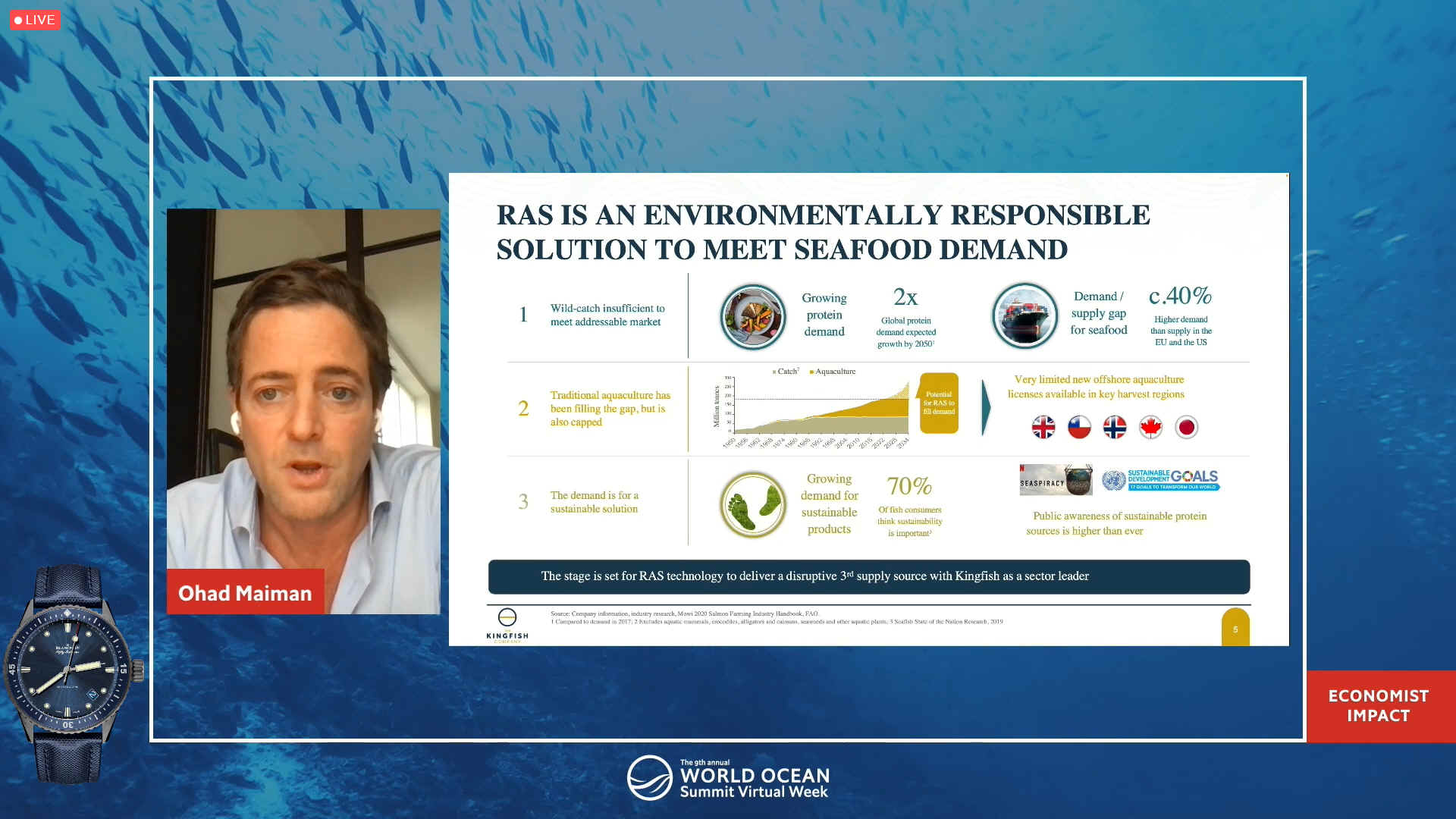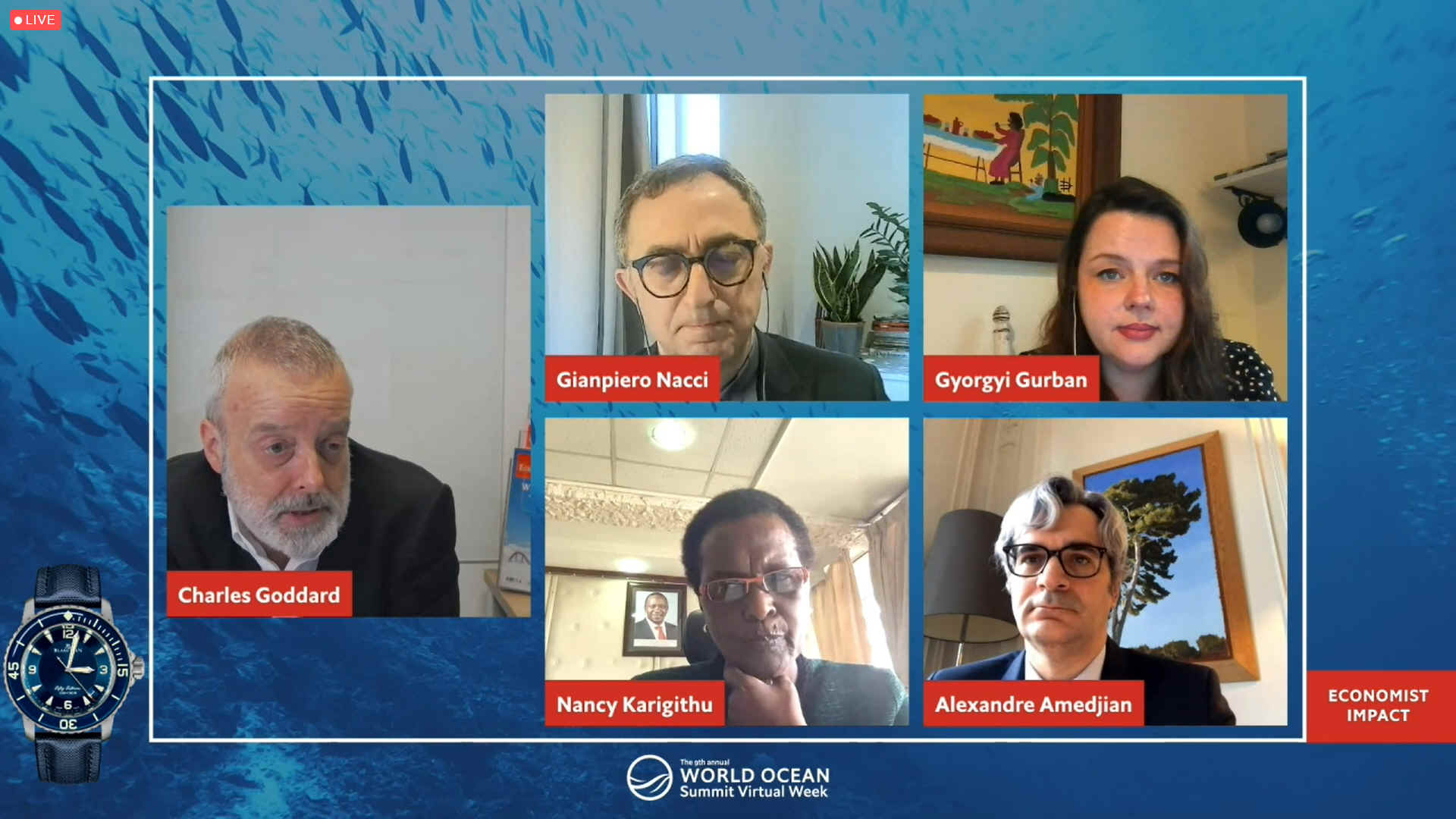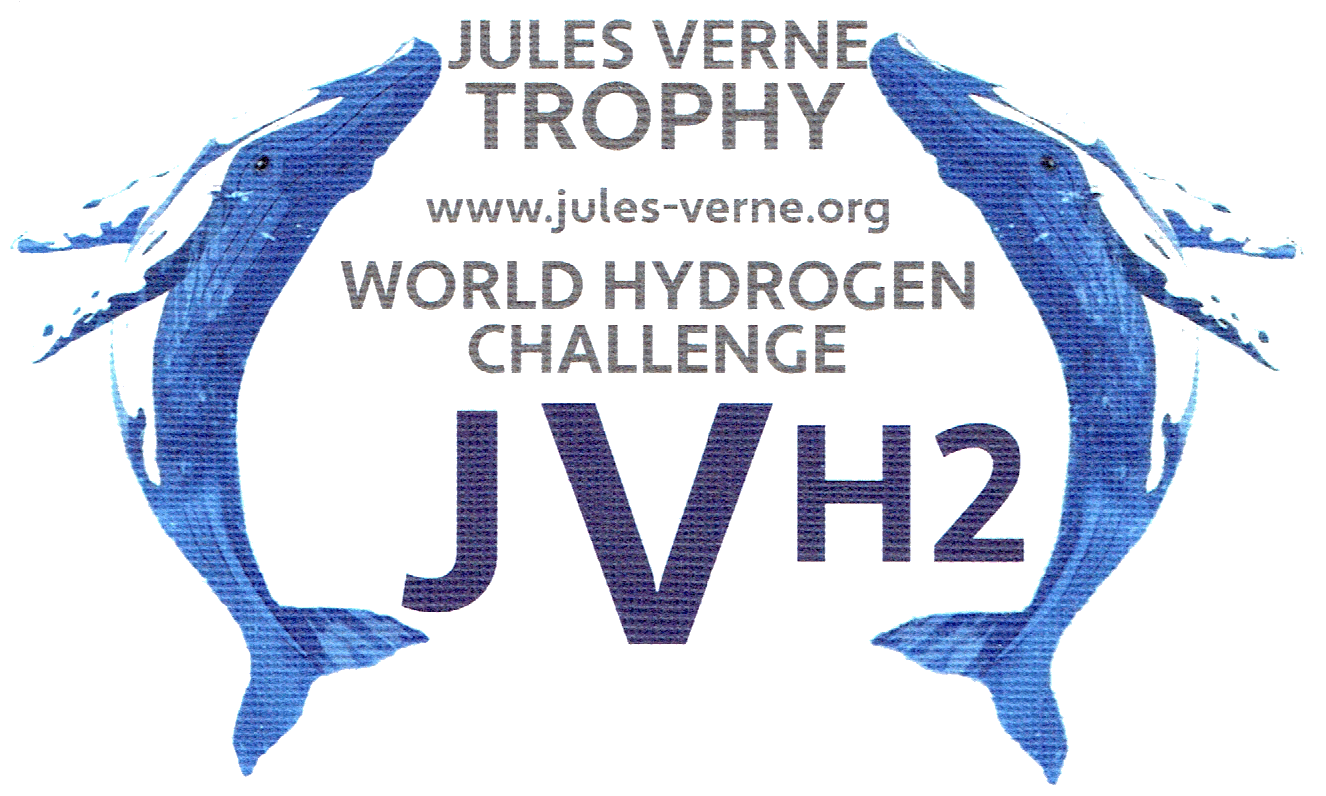|
AQUACULTURE - 9th ANNUAL WORLD OCEAN SUMMIT 2022
PLEASE USE OUR A-Z INDEX TO NAVIGATE THIS SITE, OR RETURN HOME
|
|
|
|
WEDNESDAY
2nd MARCH 2022
The 9th annual World Ocean Summit will feature six industry tracks focusing on:
Melanie Siggs has extensive experience working internationally across both commercial and non-profit sectors on issues relating to food and timber, and is best known for her work on fisheries and aquaculture. She is a director of Global Seafood Alliance, vice-president of the Centre for Responsible Seafood and an adviser to the World Economic Forum’s Friends of Ocean Action. Ms Siggs is a former special adviser to HRH The Prince of Wales’ International Sustainability Unit, and is an honorary professor at Heriot-Watt University in Edinburgh.
Aquaculture is part of a solution to the falling stocks in fisheries around the world. The FAO is investing in development in Africa and other locations. But the industry needs to grow, with just 2% of production in Africa. Ramping up small scale sustainable fish farming.
What is the big picture for ocean regeneration, and how can collaboration between governments, industry, investors, scientists and NGOs bring it about? These sessions will outline International expertise, ambition and new strategies to restore ocean health, and feed the world.
Charles Goddard imagines and builds the Group’s flagship initiatives, the purpose of which is to catalyse progress on key issues of the day. He works closely with partners on themes ranging from ageing and longevity to ocean health, focusing particularly on healthcare, the Anthropocene and the blue economy. Based in Hong Kong, Charles was previously editorial director, Asia, at the Economist Intelligence Unit, director of research in Asia, and managing director of the Economist Corporate Network, a peer network for senior executives. He is concurrently executive director of the Group’s World Ocean Initiative.
Thue Holm is a co-founder of Atlantic Sapphire and its chief technology officer. He has held several leadership positions at the company, including head of Atlantic Sapphire Denmark, and has been a thought leader behind the company’s key technological innovations since 2010. Mr Holm is a trained environmental biologist and an expert in recirculatory aquaculture systems.
Flavio Corsin has spent almost three decades working in responsible aquaculture globally for non-profit, intergovernmental and for-profit organisations. As Aqua-Spark’s director of partnerships he is responsible for driving the development and execution of a robust partner ecosystem while supporting Aqua-Spark’s portfolio, network and goals. Mr Corsin also represents Aqua-Spark on the boards of several companies and organisations, in addition to being a steering committee member in the Blue Food Partnership.
Millions of people are undernourished, with the price of food rocketing, but
fish prices remaining relatively stable. We need a world with better
solutions and distribution. Aquatech systems needs to be better understood
by businesses as a food investment opportunity.
Aquaculture
was the fastest growing industry for a decade, with 600 species there to be
fully appreciated. The focus for the future at a global level. All in the
quest to reach the FAO's food targets, thankfully aired with much insight
from the panelists introduced by the Economist.
Manuel Barange is director of the Fisheries Division at the Food and Agriculture Organisation, and responsible for its biennial flagship publication, “State of World Fisheries and Aquaculture (SOFIA)”. He is an expert on the impacts of climate change on marine ecosystems, fisheries and aquaculture, and on the interactions between natural and socioeconomic drivers of change. Dr Barange was previously deputy chief executive and director of science at the Plymouth Marine Laboratory, UK, and chair of the Science Committee of the International Council for the Exploration of the Sea (ICES). He is an honorary professor at the College of Life and Environmental Sciences at the University of Exeter, UK.
Rumaitha Al Busaidi is an Omani marine scientist and environmental activist working on sustainable solutions to climate change. Her 2021 TED talk examining women as the key to our climate future has garnered more than a million views. Ms Busaidi is group manager for business development and sustainability for Fisheries Development Oman, the country’s fisheries investment arm. A member of the Arab Youth Council on Climate Change, she has previously worked with the Omani government on sustainable diversification strategies in food production, and she has advised the current US administration on developing a climate-resilience standard for US foreign aid focusing on empowering women as a form of climate mitigation.
Innovative technology for fish-farm systems and advanced digital solutions are optimising fish-farming processes. These solutions include technologies to monitor fish health, measure feed consumption and analyse water conditions.
How are these developments transforming aquaculture and contributing to sustainable growth?
z
WEDNESDAY PM - Hal Hodson is a Technology correspondent for The Economist, chairing this panel on fish and shellfish farming, with experts in farming and support services, featuring: Jennifer Kemmerly, Allan Cannon, Bernado Carvalho and Vlada Demydova.
Allan Cannon is co-founder and chief executive officer of R3-IoT, a UK-based satellite-enabled connectivity business. He has more than 18 years’ experience in the defence and aerospace industry spanning advanced technology, R&D, design and operations. Mr Cannon is passionate about solving real-world problems and has focused on the market gap that is underserved in the current space race. R3-IoT is already helping aquaculture sites successfully digitise operations off the coast of northern Scotland, helping producers reap the benefits from dependable remote environmental and operational monitoring, and leading to more sustainable and efficient ways of working. One issue in Scotland is the high level of storms that can cause power cuts and damage. By connecting to weather systems, fish farmers can prepare for the worst.
Vlada Demydova has more than ten years’ experience in the food industry. Since 2019 she has built AquaChile’s sales organisation in EMEA area, leading it as sales director and regional managing director. Her previous roles at Mondelez International, Agrosuper and AquaChile gave her experience of the entire market value-chain, with roles in logistics, purchasing, customer service and sales. Ms Demydova is passionate about social responsibility in aquaculture and aims to bring AquaChile to the highest global standards in its working environment and in food quality, including through innovations in digitisation to combat misinformation and strengthen consumer choice. Aqua Chile is the second largest producer (after Norway) of fish protein. They are developing remote feeding and monitoring technology, to improve their operation for a more sustainable future.
Bernado Carvalho is founder and chief executive officer of Oceano Fresco, which develops and produces bivalve varieties (clams) with superior performance for shellfish farmers, respecting environmental sustainability and ensuring consumer safety. Mr Carvalho began his career in the financial sector and latterly worked in agro-business and biotechnology with Syngenta and Givaudan and the pharmaceutical sector. He has experience in entrepreneurship, research and development of agro-genetics, management and consulting, and the launch and management of startups. The basis for farming shellfish in suspended lanterns with up to twenty levels, fed by the ocean. With very little change to the way the clams live in the wild. The method used helps to re-populate species that have been supplanted by invasive expansion, like Asterisk resisting the Romans.
Jennifer Kemmerly directs Monterey Bay Aquarium’s activities in support of sustainable fisheries and aquaculture on a global scale, working with a range of stakeholders to drive improvements in environmental performance, social responsibility and management. This includes the Seafood Watch programme, which engages and empowers North American consumers and businesses to support ocean-friendly fisheries and aquaculture through their purchasing decisions. Ms Kemmerly also oversees the aquarium’s commitment to sustainability, with a focus on reducing the institution’s environmental footprint and modelling best practices. She previously served as programme manager for the Sustainable Fisheries Partnership and as a senior conservation associate for New England Aquarium. Farmed fish makes a significant contribution to feeding the world, with hundreds of small scale operators who need help. We have just scratched the surface today. But this event is helping to share the scale of the problem.
Sustainable practices come at a cost. How can business models for aquaculture companies be developed to ensure costs do not deter sustainable operations? How can sustainability be encouraged throughout the value chain? What new innovations and opportunities can be explored?
After service in the Israeli Defense Forces, and a career in business development, Ohad Maiman came across RAS technology in 2013; a smart filtration system to breed sustainable fish, using as little energy and water as possible. He pushed aside skeptical reactions, firmly believing in the new technology, and started The Kingfish Company in 2015 on the Oosterschelde in Zeeland, Netherlands. The Kingfish Company produces the Dutch Yellowtail, a high-quality and sustainable fish without antibiotics or GMOs. A second farm is also underway in Maine, USA. The Kingfish Company has been listed on Euronext Growth since 2020.
Traditional fishing flatlined at 90 millions tons per year. Hence, we need aquaculture to produce enough protein to feed the world.
The panel of speakers Tuesday 1st March 2022, provided some very interesting aspects of financing the change to zero carbon shipping, where it is by no means clear what fuels will prevail, and how aggressive the IMO will be in setting targets. Concessional finance might include a tie in with carbon taxes and R&D innovation funding - or even scrappage. z
CONTACTS
|
|
LINKS & REFERENCE
https://events.economist.com/world-ocean-summit/
|
|
|
|
|
|
PLEASE USE OUR A-Z INDEX TO NAVIGATE THIS SITE
This website is provided on a free basis as a public information service. copyright © Cleaner Oceans Foundation Ltd (COFL) (Company No: 4674774) 2022. Solar Studios, BN271RF, United Kingdom. COFL is a company without share capital whose founding objects are charitable, being not-for-profit.
|
